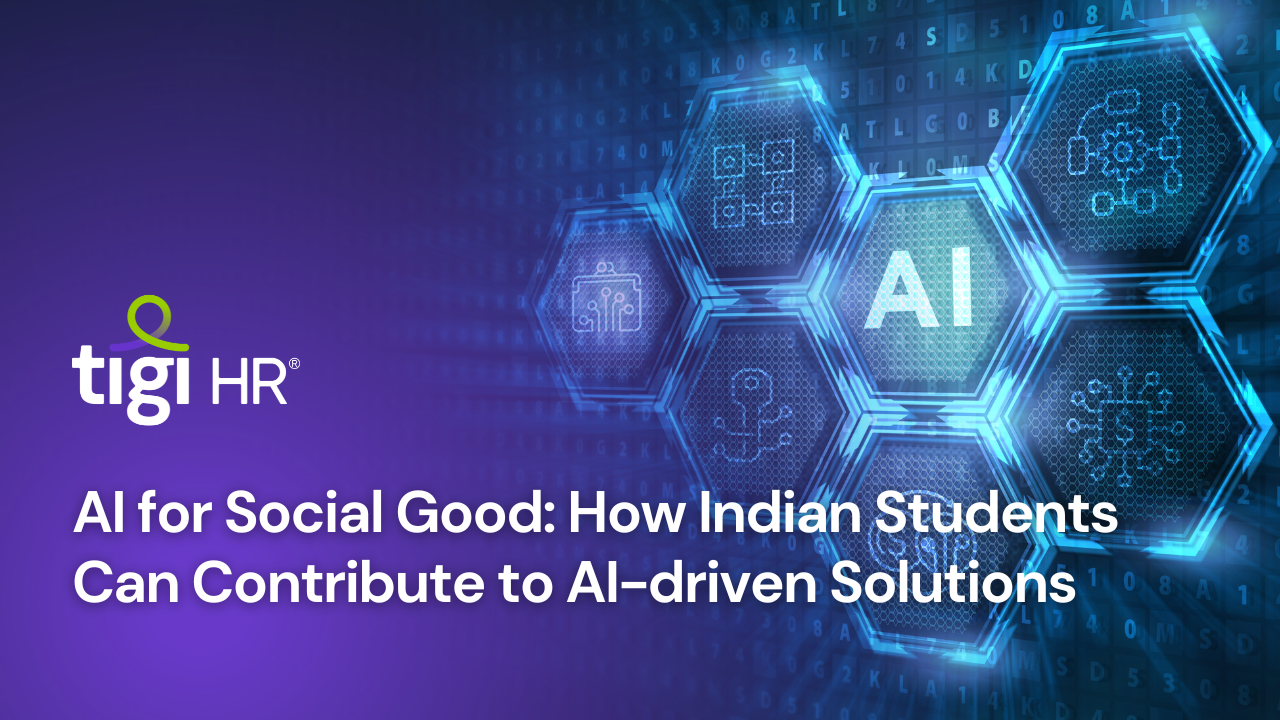Artificial Intelligence (AI) has transcended its role as a mere technological advancement and has emerged as a potent tool for social change and innovation. India, a country known for its diverse challenges, is increasingly turning to AI to address pressing issues in healthcare, education, agriculture, and more. Indian students, with their passion, creativity, and access to education, are well-positioned to contribute to AI-driven solutions that have a profound impact on society. In this article, we will explore how Indian students can harness the power of AI for social good and the avenues through which they can make a meaningful difference.
AI’s Transformative Role in India
AI is revolutionizing various sectors in India and holds the promise of solving complex problems and improving the quality of life for millions. Here’s a glimpse of AI’s transformative role in India:
**1. *Healthcare:* AI is used for early disease detection, medical image analysis, and telemedicine, especially in rural areas with limited access to healthcare. It’s helping bridge the healthcare gap.
**2. *Agriculture:* AI-powered solutions provide real-time weather forecasts, crop monitoring, and pest detection, aiding farmers in making informed decisions and optimizing crop yields.
**3. *Education:* AI is enhancing personalized learning experiences, providing accessibility to quality education for students in remote areas through online platforms.
**4. *Environmental Conservation:* AI is used for monitoring and protecting India’s biodiversity, tracking wildlife, and combating illegal poaching.
**5. *Disaster Management:* AI aids in disaster prediction, early warning systems, and post-disaster recovery efforts, minimizing the impact of natural disasters.
Why Indian Students Should Engage in AI for Social Good
As Indian students consider their academic and career paths, there are compelling reasons to delve into AI for social good:
**1. *Impactful Solutions:* AI offers the potential to create solutions that address real-world problems faced by communities in India. Your work can lead to improved healthcare, increased agricultural productivity, and enhanced education accessibility.
**2. *Career Opportunities:* Engaging in AI for social good can open doors to unique career opportunities. It’s a chance to work on projects that align with your values while gaining valuable experience.
**3. *Global Relevance:* The AI skills you acquire while working on socially impactful projects are transferable and can make you competitive not just in India but on the global stage.
**4. *Personal Fulfillment:* Contributing to AI-driven solutions for social good can be immensely rewarding. It provides a sense of purpose, knowing that your work has a positive impact on society.
How Indian Students Can Contribute to AI for Social Good
The journey to contribute to AI for social good begins with education and extends to practical application. Here’s how Indian students can make a difference:
**1. *Education and Skill Development:*
**a. *AI Courses:* Enroll in AI courses and programs to build a strong foundation in AI and machine learning. Platforms like Coursera, edX, and Udacity offer a variety of AI-related courses.
**b. *AI Research:* Consider pursuing research projects or internships in AI, focusing on areas relevant to social good, such as healthcare, agriculture, or education.
**c. *Collaborate:* Work with professors and mentors who share your passion for AI-driven solutions for societal challenges. They can provide guidance and support.
**2. *Participate in Competitions and Hackathons:*
**a. *Kaggle:* Kaggle hosts machine learning competitions and provides datasets for real-world problems. Participate in these challenges to hone your skills.
**b. *AI Hackathons:* Look for AI hackathons and competitions, often organized by tech companies, universities, and nonprofit organizations.
**3. *Collaborate with NGOs and Nonprofits:*
**a. *Partnerships:* Many NGOs and nonprofits in India are actively seeking AI expertise to address societal issues. Partner with organizations that align with your interests.
**b. *Pro Bono Work:* Offer your AI skills pro bono to nonprofit projects or volunteer your time to help implement AI-driven solutions.
**4. *Entrepreneurship:*
**a. *Startups:* Consider founding or joining startups that focus on AI for social impact. India’s startup ecosystem is vibrant, and there’s room for innovation in the social sector.
**b. *Incubators and Accelerators:* Explore programs that support socially conscious startups, providing mentorship and resources to bring your ideas to fruition.
**5. *Awareness and Advocacy:*
**a. *Educate Others:* Raise awareness about the potential of AI for social good among your peers and community members. Educate others about the impact AI can have on societal challenges.
**b. *Advocate for Change:* Advocate for policies and initiatives that promote the use of AI for social good, such as government support for AI-driven projects in critical sectors.
Challenges and Considerations
While AI for social good presents exciting opportunities, it comes with its own set of challenges and considerations:
**1. *Resource Constraints:* Limited access to computing resources and data can be a hindrance for students working on AI projects. Collaborating with organizations or universities can help mitigate this challenge.
**2. *Ethical and Fair AI:* Ensuring that AI solutions are ethically developed and do not perpetuate biases is crucial. Students must prioritize fairness and equity in their projects.
**3. *Interdisciplinary Approach:* AI projects for social good often require collaboration with experts from various fields. Developing interdisciplinary skills and building diverse teams can enhance project success.
**4. *Sustainability:* Consider the sustainability of your AI projects. Will they be maintained and updated to remain effective over time? Sustainability
is key to long-term impact.
Conclusion
The convergence of AI and social good in India represents a remarkable opportunity for students to make a meaningful impact on their communities and society at large. With a combination of education, practical application, and a commitment to ethical and equitable AI development, Indian students can contribute to AI-driven solutions that address pressing challenges in healthcare, agriculture, education, and beyond.
Embrace the potential of AI as a force for positive change, and channel your passion and skills toward creating a brighter, more inclusive future for India through AI for social good. Your journey begins with education and extends to the practical application of AI in projects that have the power to transform lives and communities.
Also Check: AI Learning Landscape





